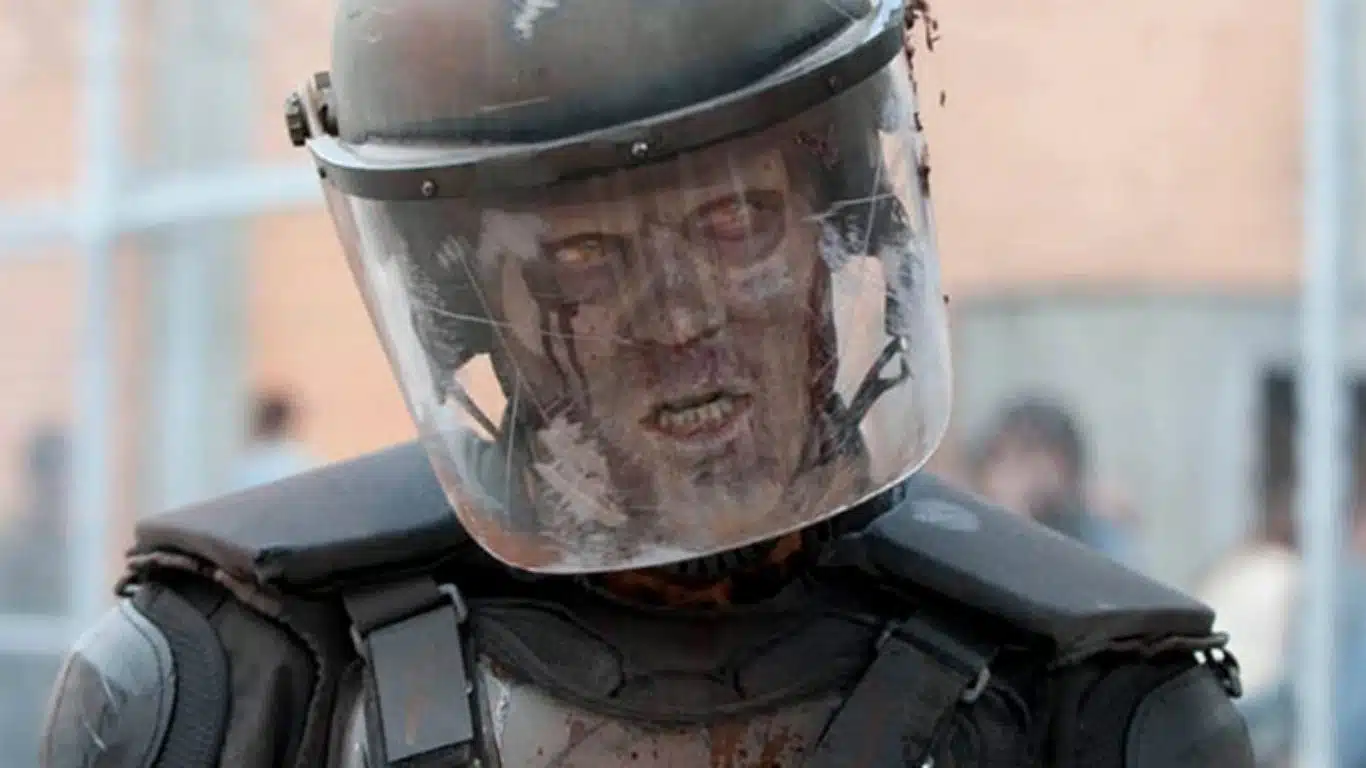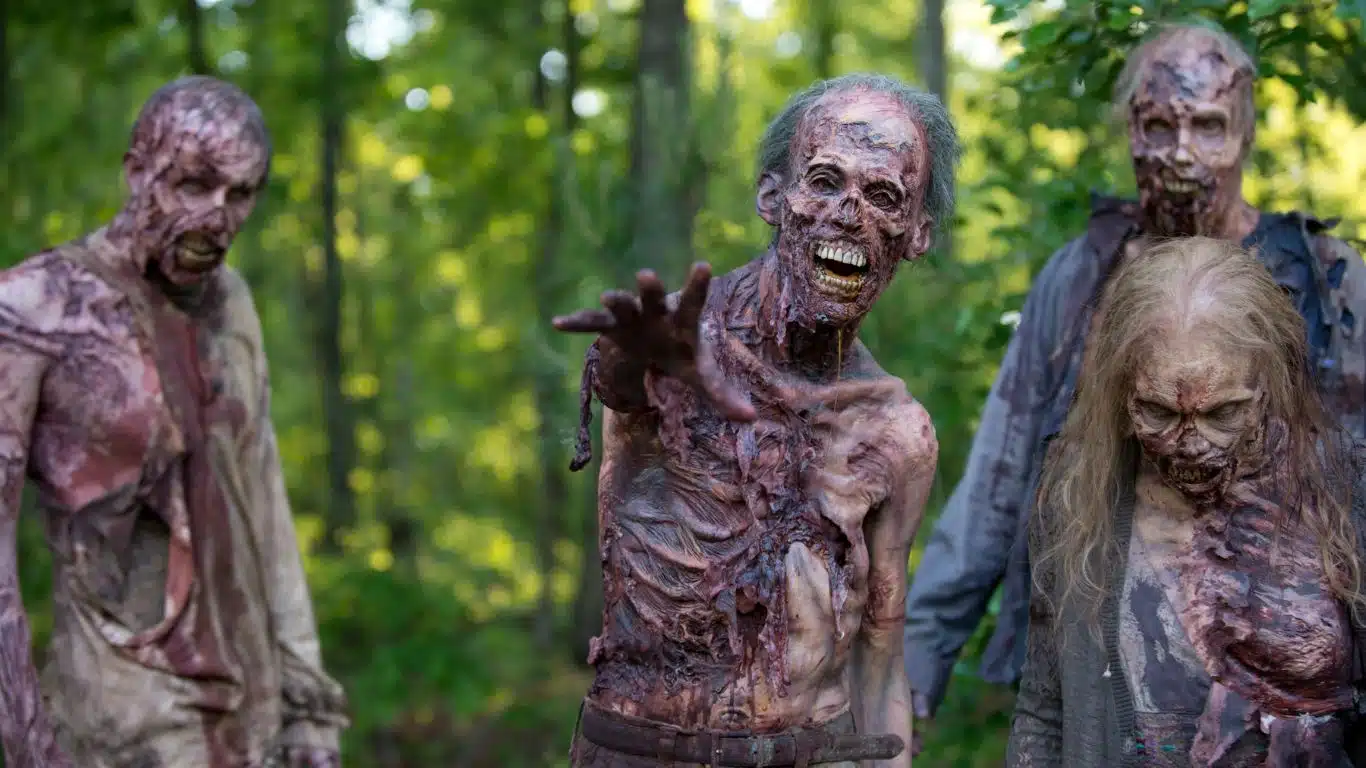The concept of a zombie outbreak has been a popular topic in popular culture for decades, with countless movies, TV shows, and books exploring what life might be like in a world overrun by the undead. While it’s unlikely that a zombie outbreak will ever actually occur, the idea of life after such an event can still provide insights into how societies cope with unexpected and catastrophic events. Here, we will explore Life after the Zombie Outbreak, considering factors such as the level of destruction caused, the effectiveness of containment measures, and the psychological impact on survivors.
Life after the Zombie Outbreak
Zombie threat persists

If the zombie outbreak is not eliminated, zombies would continue to pose a significant threat to survivors. In this scenario, survivors would have to be constantly vigilant and adapt to the new reality of living in a world with zombies.
Living in a world with zombies would require significant lifestyle changes, as survivors would need to learn how to protect themselves from zombie attacks, whether by barricading themselves in secure locations, developing effective weapons, or learning how to fight zombies hand-to-hand. Survivors would also need to learn how to avoid attracting the attention of zombies, such as by minimizing noise or movement.
Besides the physical threat of zombies, survivors would also face psychological challenges. The constant stress and fear of living in a world with zombies could lead to anxiety, depression, and other mental health issues. Survivors would need to develop coping mechanisms to deal with the ongoing stress and trauma of living in a post-outbreak world.
Scavenging and surviving

In the immediate aftermath of a zombie outbreak, survivors may have to resort to scavenging for food, water, and other essential resources to survive. With infrastructure and supply chains disrupted, obtaining basic necessities would be a constant struggle. The need to secure resources could lead to conflict and competition between survivors, particularly if supplies are limited.
Scavenging for supplies would require navigating through dangerous and unpredictable environments, as zombies could still pose a threat to survivors. This would require individuals and groups to work together to ensure their safety and to effectively gather supplies. As resources become scarcer, conflict between survivors could become more intense. In some cases, groups might resort to violence and theft to obtain supplies, leading to an increase in crime and lawlessness.
Not all survivors would necessarily resort to violence or theft. Some might band together to form communities or groups for mutual support, sharing resources and skills. Such groups could provide safety in numbers and could potentially help rebuild society in the long term.
Isolated communities

In more severe zombie outbreaks, some communities may become isolated from the outside world. This isolation could occur by necessity if the outbreak were particularly severe and widespread, making travel or communication with the outside world dangerous or impossible. Alternatively, some communities might choose to isolate themselves intentionally, to protect themselves from the zombie threat and to minimize the risk of infection.
Isolated communities would face unique challenges in their efforts to survive. They would have to rely entirely on their own resources, including food, water, medical supplies, and other necessities. This could mean learning how to cultivate their own crops, hunt, and fish, and produce their own electricity and other vital services. It would also require cooperation and collaboration within the community to ensure that everyone’s basic needs are met.
The isolation could also lead to the development of a new and unique culture, as communities adapt to their new way of life. In some cases, this could lead to new forms of art, music, or literature that reflect the struggles and triumphs of life in a post-zombie world. Also the shared experience of surviving the outbreak could lead to a stronger sense of community and belonging among the isolated survivors.
Rebuilding society

If the zombie outbreak is successfully contained and eliminated, survivors can work to rebuild society and restore normalcy to their lives. This process would involve rebuilding the infrastructure, institutions, and economies that were disrupted during the outbreak.
The rebuilding process would likely involve significant challenges, as the outbreak would have caused widespread damage to physical infrastructure, such as buildings, roads, and bridges, as well as social and economic infrastructure, such as government institutions, supply chains, and financial systems. Restoring these systems would require significant time, resources, and coordination between individuals and groups.
Survivors would also need to rebuild the social infrastructure of their communities. This could involve rebuilding community organizations, such as schools, churches, and other social institutions, and reestablishing trust and social connections between individuals and groups. The rebuilding process could also present opportunities for survivors to improve upon pre-outbreak systems and institutions. For example, survivors could work to build more resilient and sustainable infrastructure that is less vulnerable to future outbreaks or other disasters.
Rebuilding society after a zombie outbreak would be a difficult and complex process. It would require significant cooperation and coordination between individuals and groups, as well as innovative thinking and a willingness to learn from the mistakes of the past. With persistence and determination, survivors could eventually restore normalcy to their lives and rebuild a society that is stronger, more resilient, and better prepared for future challenges.
New world order

If the outbreak led to widespread chaos, violence, and loss of life, it is possible that authoritarian regimes or groups could emerge in an attempt to impose order and security on the remaining population. This could lead to the loss of individual freedoms and human rights, with power concentrated in the hands of a few.
Alternatively, the aftermath of the outbreak could lead to a more egalitarian and democratic society, with power distributed more evenly among individuals and communities. This could lead to new forms of collaboration and cooperation between people of different backgrounds and ideologies, as well as new approaches to solving societal problems.
In either scenario, the emergence of a new world order would require significant cooperation and negotiation between different groups and individuals. It would also require new approaches to governance and decision-making, as well as a willingness to learn from the mistakes of the past and build a more equitable and sustainable society for the future.
Scientific study

If a cure for the zombie virus is developed, it would likely generate significant interest from the scientific community. Scientists would want to study the virus and the outbreak to better understand how it emerged and how it was contained. This could lead to significant advances in medicine and public health, as well as new insights into how infectious diseases spread and how they can be prevented.
The development of a cure could involve many different areas of scientific research, including virology, immunology, pharmacology, and epidemiology. Scientists would need to study the genetic makeup of the virus to identify potential targets for a cure, as well as the ways in which the virus spreads and affects the human body.
Scientists would also want to understand how the virus emerged in the first place and how it was contained. This could involve studying the animal reservoirs of the virus and the conditions that led to the initial outbreak. Scientists would also want to study the effectiveness of different containment and mitigation strategies, to determine what worked and what didn’t.
New forms of communication and technology

In a post-zombie outbreak world, survivors may need to develop new forms of communication and technology to aid in their efforts to rebuild society and protect themselves from future outbreaks. One potential development could be the creation of new forms of decentralized communication, such as mesh networks. Mesh networks allow devices to connect directly to one another, without the need for a centralized hub. This could be useful in situations where traditional communication infrastructure has been destroyed or is unreliable.
Mesh networks could be used by survivors to share information, coordinate resources, and communicate with one another over long distances. This could be particularly useful in isolated communities, where survivors may need to communicate with others who are far away. Mesh networks could also be used to share information about the location and movements of zombies, which could be crucial for avoiding them and staying safe.
New forms of communication, survivors may also need new tools and technologies for identifying and treating infectious diseases. This could include new diagnostic tools that can quickly and accurately identify the presence of a virus, as well as new treatments and vaccines that can be rapidly developed and distributed.
For example, survivors may develop portable diagnostic devices that can be used in the field to identify the presence of the zombie virus quickly and accurately or other infectious diseases. They may also develop new treatments that can be administered in the field, without the need for hospitalization or specialized medical equipment. These new tools and technologies could be crucial in preventing future outbreaks and ensuring the health and safety of survivors.
Also Read: 10 Best Shows Like Wednesday On Netflix



